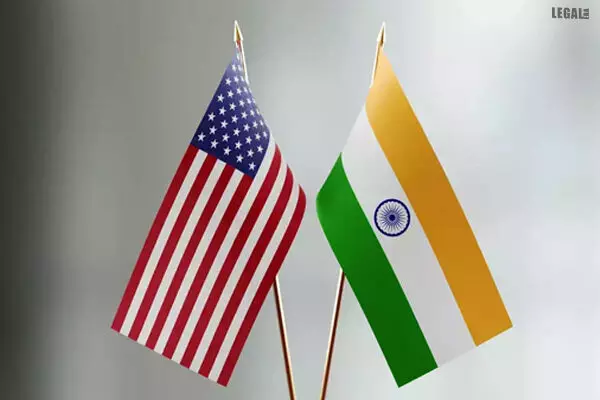- Home
- News
- Articles+
- Aerospace
- AI
- Agriculture
- Alternate Dispute Resolution
- Arbitration & Mediation
- Banking and Finance
- Bankruptcy
- Book Review
- Bribery & Corruption
- Commercial Litigation
- Competition Law
- Conference Reports
- Consumer Products
- Contract
- Corporate Governance
- Corporate Law
- Covid-19
- Cryptocurrency
- Cybersecurity
- Data Protection
- Defence
- Digital Economy
- E-commerce
- Employment Law
- Energy and Natural Resources
- Entertainment and Sports Law
- Environmental Law
- ESG
- FDI
- Food and Beverage
- Gaming
- Health Care
- IBC Diaries
- In Focus
- Inclusion & Diversity
- Insurance Law
- Intellectual Property
- International Law
- IP & Tech Era
- Know the Law
- Labour Laws
- Law & Policy and Regulation
- Litigation
- Litigation Funding
- Manufacturing
- Mergers & Acquisitions
- NFTs
- Privacy
- Private Equity
- Project Finance
- Real Estate
- Risk and Compliance
- Student Corner
- Take On Board
- Tax
- Technology Media and Telecom
- Tributes
- Viewpoint
- Zoom In
- Law Firms
- In-House
- Rankings
- E-Magazine
- Legal Era TV
- Events
- News
- Articles
- Aerospace
- AI
- Agriculture
- Alternate Dispute Resolution
- Arbitration & Mediation
- Banking and Finance
- Bankruptcy
- Book Review
- Bribery & Corruption
- Commercial Litigation
- Competition Law
- Conference Reports
- Consumer Products
- Contract
- Corporate Governance
- Corporate Law
- Covid-19
- Cryptocurrency
- Cybersecurity
- Data Protection
- Defence
- Digital Economy
- E-commerce
- Employment Law
- Energy and Natural Resources
- Entertainment and Sports Law
- Environmental Law
- ESG
- FDI
- Food and Beverage
- Gaming
- Health Care
- IBC Diaries
- In Focus
- Inclusion & Diversity
- Insurance Law
- Intellectual Property
- International Law
- IP & Tech Era
- Know the Law
- Labour Laws
- Law & Policy and Regulation
- Litigation
- Litigation Funding
- Manufacturing
- Mergers & Acquisitions
- NFTs
- Privacy
- Private Equity
- Project Finance
- Real Estate
- Risk and Compliance
- Student Corner
- Take On Board
- Tax
- Technology Media and Telecom
- Tributes
- Viewpoint
- Zoom In
- Law Firms
- In-House
- Rankings
- E-Magazine
- Legal Era TV
- Events
ITAT: India-US DTAA requires consideration

ITAT: India-US DTAA requires consideration
India-US Double Taxation Avoidance Agreement (DTAA) requires consideration for accessing databases to be treated as 'Royalty' under the Delhi Bench of Income Tax Appellate Tribunal (ITAT)
When the purchaser reads a book, he does not acquire the right to exploit any of the underlying copyright, he only experiences the contents. This is based on the judicial opinion of Challa Nagendra Prasad (Judicial Member) and N.K. Billaiya (Accountant Member). Accordingly, the client doesn't receive the right to exploit copyright in the database; rather, he receives only the right to use it for his own business purposes.
The appellant/assessee is a business corporation operating in the USA that provides information products and services to organizations across the globe regarding global business and financial news. The company provides information through newspapers, wire services, websites, applications, newsletters, magazines, proprietary databases, conferences & radio.
Dow Jones Consulting India Pvt Ltd (DJCIPL) was appointed as the exclusive distributor of the appellant company's products in the Indian market on a principal to principal basis. Accordingly, DJCIPL pays the appellant company at a price that is fair and independent.
Under the provisions of the Act as well as the India-USA DTAA, the Assessing Officer was of the firm belief that the DJCIPL receipts should be taxed in India as 'Royalty Income' under the proceedings of the scrutiny assessment.
The lawyer for the assessee vehemently maintained that the assessee was compensated for using the database and the submission of the copyright rights of DJCIPL, so the impugned receipts could not be taxed as 'Royalty' in the assessee's hands.
The ITAT noted that the copyrighted article remained in the hands of the assessee, hence there was no transfer of legal title. It is the assessee's exclusive ownership and interest in all rights, titles, and interests in the licensed software claimed to be copyrighted. A person authorized by DJCIPL cannot reproduce the date in any material form, make any adaptation to the data, or translate the date.
As a result, the tribunal found that distinguishing between payment for the right to use the copyright in a program and payment for the right to use the program itself, is crucial for determining if a payment is for use of copyright.



